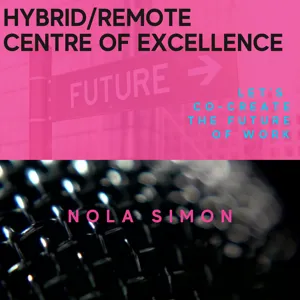The Digital Savvy Small Town: A Journey Through Community and Media to the Future of Skills Development

Let me tell you a story 50 years in the making.
I moved to the Town of Georgina when I was 18 months old. I've lived here 50 years.
We've never had much tech infrastructure so I can't tell you how excited I was to learn that our new community centre has an audio and video recording studio I can use for podcasting.
I thought it would be a simple matter to get someone from the town on my podcast to talk about the MURC (Multi-Use Recreation Centre). Not so. It's an ongoing adventure.
This episode lays the groundwork - my personal history, media and journalism in small towns in Ontario, PR for politicians and a surprise cameo from my first employer. And drama surrounding gender neutral change rooms and Facebook. It's a simple rule - don't get naked in public - that has the town confused.
This is for all the people who have ever asked me about the Keswick dinner jacket. We are so much more. A hotbed of podcasters, the forefront of skills development. Eventually - if the software ever gets installed.
